And just like that, the federal government shutdown is set to go through the weekend and perhaps beyond, as partisan gridlock continues in the Senate.
On Friday, Senate Democrats rejected Republicans’ seven-week stopgap funding extension for the fourth time, with no new members walking away from leadership’s demands for policy concessions.
Forty-two Democrats, led by Senate Minority Leader Chuck Schumer, D-N.Y., and one Republican, Sen. Rand Paul, R-Ky., voted against the continuing resolution. Only two Democrats, Sens. Catherine Cortez Masto of Nevada and John Fetterman of Pennsylvania, along with Sen. Angus King, I-Maine, who caucuses with Democrats, supported the measure. Two senators, Sen. Chris Coons, D-Del., and Jerry Moran, R-Kan., did not vote.
Republicans will need eight Democrat votes to vote to end debate and reopen the government, assuming Paul continues to oppose the continuing resolution.
The two parties have, for now, firmly entrenched themselves in two camps: Democrats refusing to back the short-term continuing resolution without major concessions, and Republicans refusing to undo the accomplishments of the 119th Congress.
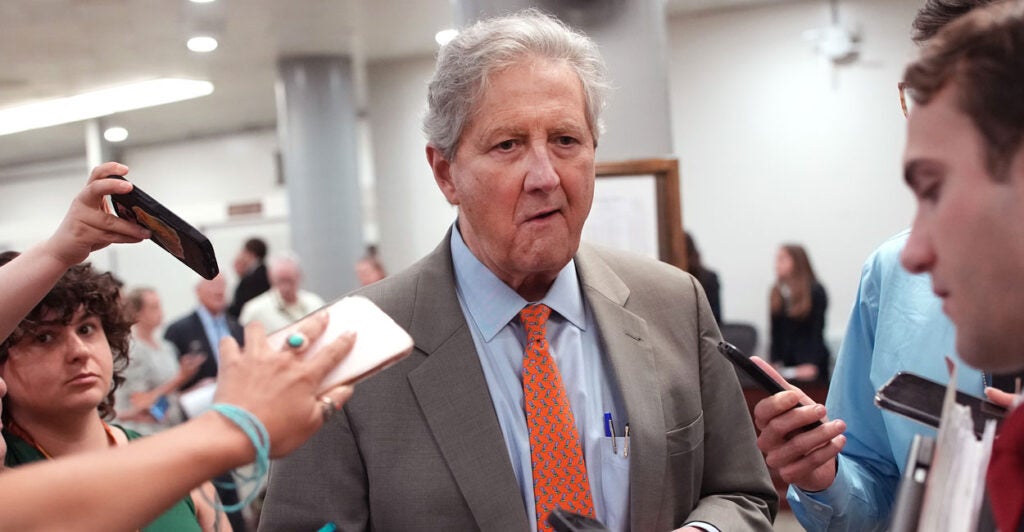 Sen. John Kennedy, R-La. (Kevin Dietsch/Getty Images)
Sen. John Kennedy, R-La. (Kevin Dietsch/Getty Images)Sen. John Kennedy, R-La., told reporters Friday that he had lost some of his confidence in the situation being resolved.
“When I talked to y’all yesterday, or the day before, I’d walked the floor, I was feeling a little bit toasty, thinking that we might come out of this, because people are talking. But I’m less optimistic now,” he said.
“We’re getting along fine. Nobody’s stabbing each other, but their demands are laughable. They’re just totally unreasonable,” Kennedy continued. “You know, I get the strategy of asking for a pony and being willing to settle for a puppy, OK? But they’re asking for every horse in the United States and every pony in the United States: $1.5 trillion [in demands]? Give me a break.”
Dems’ Big Health Care Demands
Democrats, as outlined in their alternative bill that also has repeatedly failed in the Senate, have a big wish list.
At the top of it is undoing the cost-saving Medicaid reforms included in the Republican budget reconciliation bill and also extending expiring COVID-era health care premium tax credits.
But that would be difficult for many Republicans to stomach.
“COVID is over, so it’s time to resume lower levels of spending,” Sen. Cynthia Lummis, R-Wyo., told reporters Friday. “We probably should be looking at Obamacare on a more holistic basis, because it’s not a success, and it’s going to have to require expensive Band-Aids to hold it together. So you know, it’s probably time to take a more serious look at it.”
On Friday, Senate Majority Leader John Thune, R-S.D., told reporters that there’s no way for Republican leadership to guarantee any outcome on the tax-credit issue.
“We can’t make commitments or promises on COVID, because that’s not something that we can guarantee, that there are the votes there to do [it],” he said.
Still, some Republicans have expressed interest in providing some form of extension on the Biden-era tax credits, but not as a negotiating piece to keep the government open.
“That’s something that I’m willing to talk about,” Sen. Josh Hawley, R-Mo., told The Daily Signal. “I mean, I think we got to do something to make sure the premiums don’t essentially double, which they will in my state for private insurance. We just can’t allow that to happen. That’s a lot of Missourians who will not be able to afford health care.”
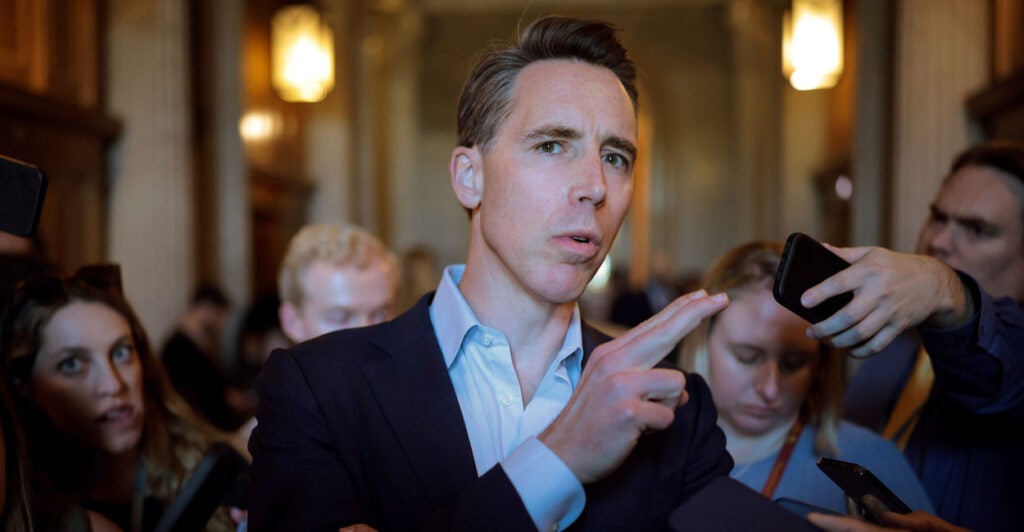 Sen. Josh Hawley, R-Mo. (Kayla Bartkowski/Getty Images)
Sen. Josh Hawley, R-Mo. (Kayla Bartkowski/Getty Images)But he was clear on how futile he views a shutdown.
“If people want to talk about how to make health care cheaper, I’m all for it, but I would urge my Democrat colleagues like, ‘Let’s stop the hostage-taking,‘” he said. “Denying people health care now, veterans, seniors … How does that help by shutting down the government now and hurting all these people right now?”
Rescissions
Another item on the Democrat wish list is to hamstring rescissions.
Rescissions are a type of legislation originating in the White House, in which the administration submits unspent, previously appropriated funds to be canceled by Congress, pending its approval.
A simple majority is required in both chambers to pass such a bill, and the White House has experimented recently with pocket rescissions—a way to essentially rescind funds without Congress’ approval.
In late August, the White House effectively declared that $4.9 billion in foreign-aid spending was eliminated, a move that the Supreme Court allowed in a 6-3 decision.
Democrats have argued that this nullifies the purpose of bipartisan spending deals and erodes trust.
Hawley disagrees.
“What, do they think this is trust-building?” Hawley told The Daily Signal, as he spoke on the shutdown. “Does it build trust with the American people to shut down the entire government for the nation, because you don’t like the way that Donald Trump, whatever, tweeted about you? I mean, it’s absurd. The rescissions package, by the way, it’s governed by law. I mean, it’s a long-standing, statutorily governed process.”
Lummis similarly told The Daily Signal she saw no reason for Republicans to relinquish rescissions in exchange for Democrat cooperation.
“As a devout fiscal conservative, I know that we have overspent on things, especially during the Biden presidency, especially that related to the topic of environmental justice,” she said.
“I don’t even know what that means, but many, many millions were thrown at the topic of environmental justice. That’s an area where I think rescissions are justified, and there are probably others. The rescissions that were focused on [diversity, equity, and inclusion] as it’s related to foreign aid—It’s another area where I think it was appropriate for rescissions to occur. So, we can’t go on, $37 trillion in debt, and fail to address it.”
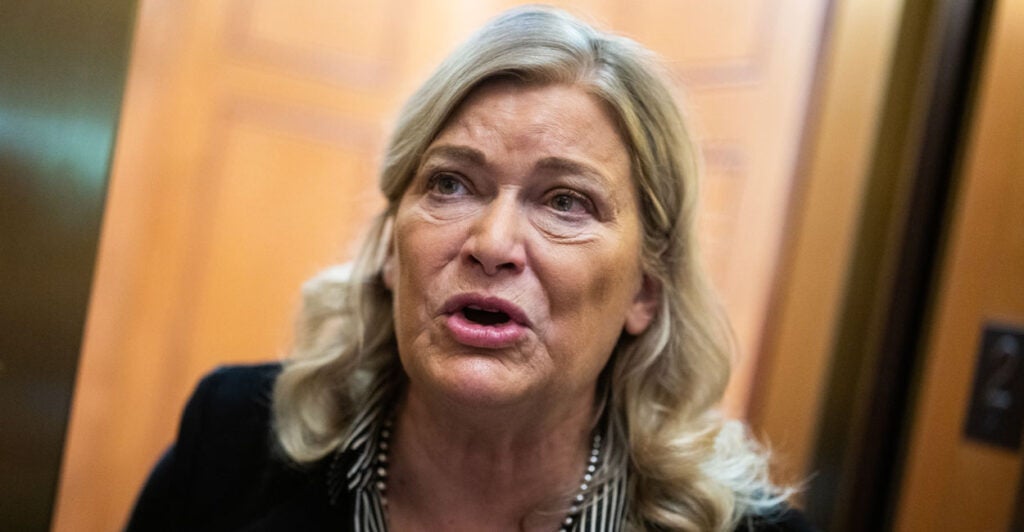 Sen. Cynthia Lummis, R-Wyo. (Tom Williams/CQ-Roll Call via Getty Images)
Sen. Cynthia Lummis, R-Wyo. (Tom Williams/CQ-Roll Call via Getty Images)Lummis added:
It’s surprising to me that it’s not viewed as a constitutional crisis to overspend at that level, and yet other issues are deemed a constitutional crisis, so I think rescissions must continue, and so I don’t agree with the Democrats on this.
However, Sen. Thom Tillis, R-N.C., told The Daily Signal on Wednesday that he would view rescissions with more caution from here on out, as he thinks they have harmed negotiations.
“I think the pocket rescission is a horrible idea,” he said. “If you think about the limited amount of money in the scheme of things versus the ill will that created, I think it was a bad idea.”
Responding to Democrats demanding that Republicans cease voting on rescissions package during the duration of the stopgap funding bill, Tillis said, “That’s reasonable … I, for one, made it very clear I won’t vote for any rescission [of funding] that I can see was very clearly articulated as a basis for a compromise in the past that blows this place up if we start doing that.”
For now, it appears the Republican strategy remain the same—to keep giving Democrats more chances to reopen the government.
The post Senate in Stalemate as Republicans Call Dems’ Shutdown Demands a Nonstarter appeared first on The Daily Signal.
.png)




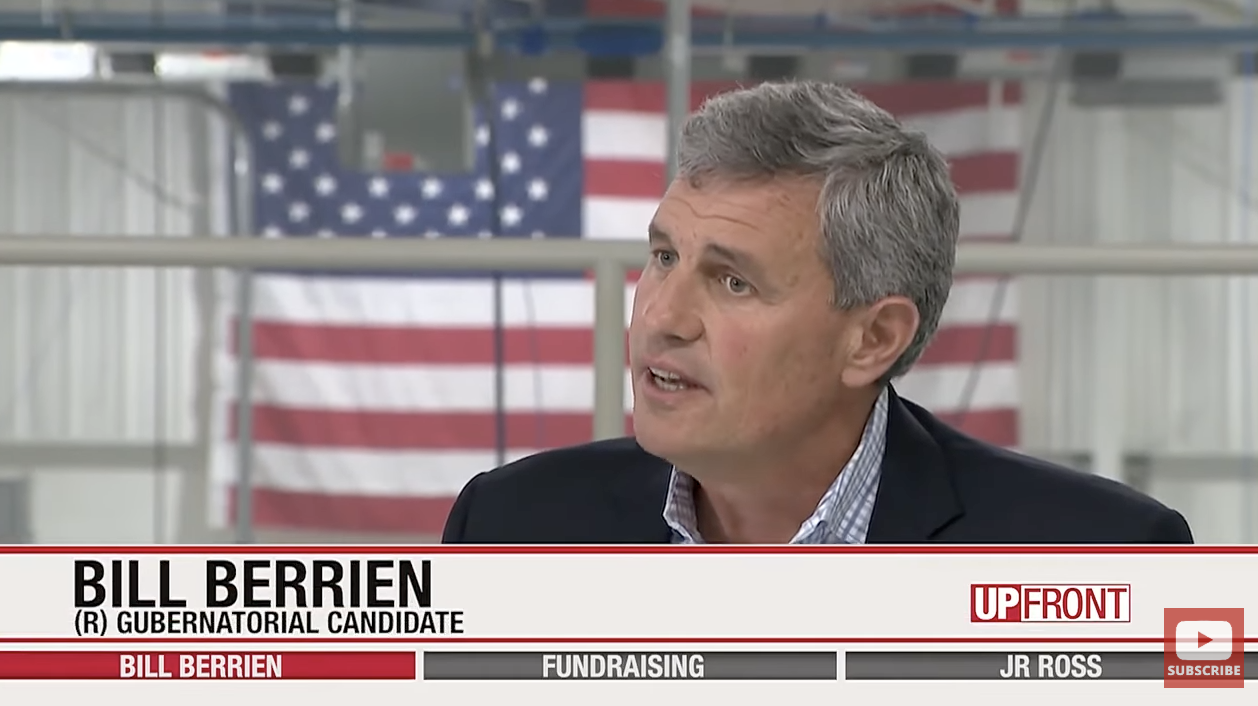



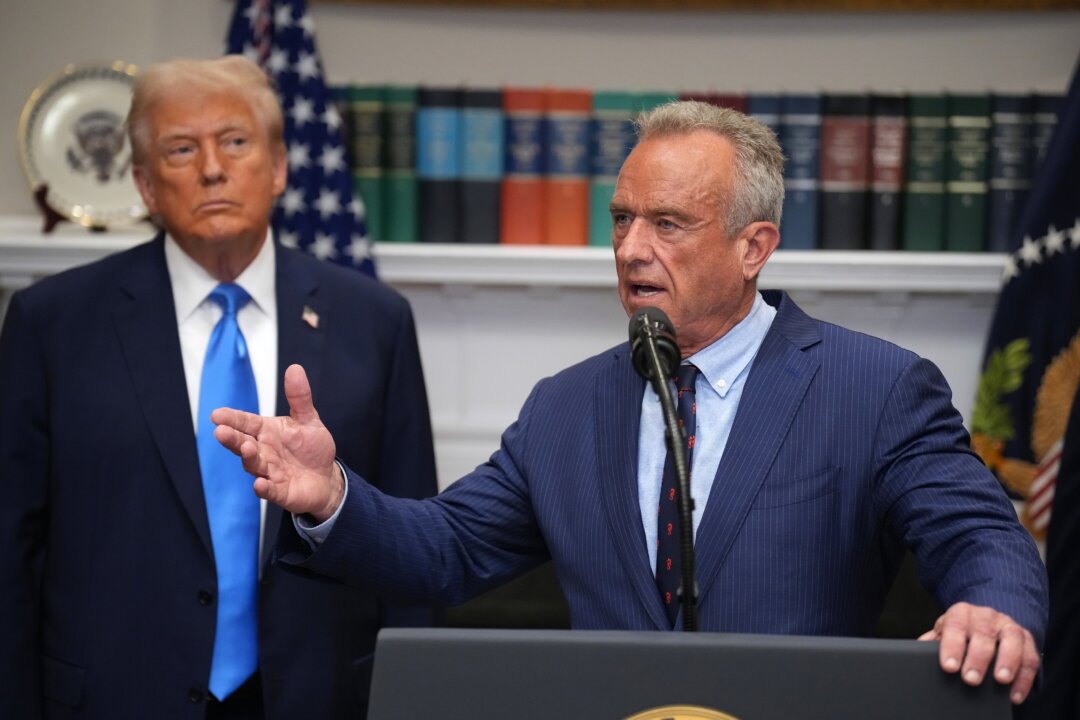





 English (US)
English (US)